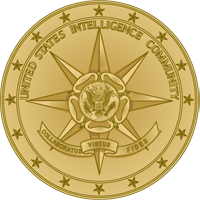The best place to end this series is on the most important method for job hunting. Networking will typically yield far more results than endlessly filling out online applications. Of course, you need to actually apply for a job to have a chance of getting it, but keep in mind that around 50% of job openings are never advertised. This can be especially true for internships where the hassle of sorting through hundreds of applications is often deemed unnecessary when a person can simply find a candidate through their alumni or other professional networks.
LinkedIn
This is way too obvious. But, join internationally themed groups to find the right people. Then, actually contact those people and try to get them on the phone or face‑to‑face. I found Endless Job Offers to be a pretty helpful site to learn about cold calling people.
The Maxwell School of Syracuse University group and its sub‑groups has consistent job postings coming from alumni.
Maxwell School of Syracuse University sub‑groups
- Maxwell School DC Network
- NYC Area Maxwell School Network
- Policy Studies Alumni Network
- MAXCNY Central New York Network
- Greater Boston Area Maxwell Network
- Northern California Maxwell Network
- Maxwell School Africa Network
- Maxwell School India Network
- Albany Area Maxwell Network
- Maxwell School China Network
- Southern California Maxwell Network
- Chicago Area Maxwell Network
- Maxwell School Texas Network
- Maxwell School Japanese Network
- Peruvian Maxwell Network
- Philadelphia Area Maxwell Network
- Maxwell School Korean Alumni Network
- Thailand Maxwell School Network
- Phoenix Area Maxwell Network
- Maxwell SU in Minnesota
Internations
The premier community for current and former expats. This is a generally professional and mature network focused on activities and increasingly services for people working abroad. My wife and I have used it to do some great networking. While there is not yet a chapter in Syracuse, it’s still helpful to have access to the contacts within this network.
LinkTank
Great way to connect with people through events in Washington, DC.
Cuse Community
Networking site for all graduates of SU. A great place to connect with alum from nearly any profession.
Meetup
Great for face‑to‑face networking. Look for international or industry focused groups or just start one yourself and watch people flock your way.
Facebook
No, really. Evidence shows that more people get jobs through Facebook than LinkedIn. This is probably because your FB friends and family actually know you and are the people most willing to help you. Your mother’s friend from high school might actually be doing something that interests you or this person can give you the name of another more relevant connection. One never knows where networking might begin, but your friends, family, and social acquaintances will be willing to lend you a hand. Despite this, given how FB tends to distract you from job searching and all kinds of other important things in life, it might not always be the best use of your time.
If you’re nervous about networking, this video might help.
Featured image by Marc Smith, www.connectedaction.net. SU Maxwell School does not endorse any views of the creator. Image available on Flickr.




